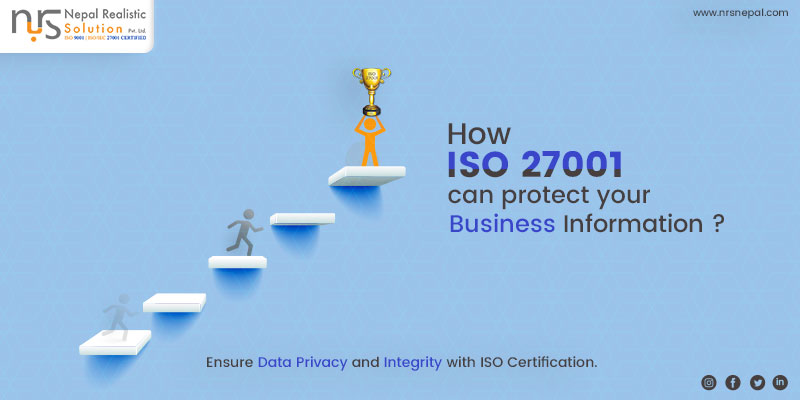
ISO 27001 is an international standard that outlines a framework for managing and protecting sensitive information. It provides a systematic approach for identifying, assessing, and mitigating risks to the confidentiality, integrity, and availability of information.
ISO 27001 helps to protect a business's information by providing a framework for managing and controlling information security risks. The standard establishes a process-based approach to identifying, assessing, and mitigating risks to the confidentiality, integrity, and availability of information.
By implementing ISO 27001, an organization can establish and maintain an information security management system (ISMS) that can help to protect sensitive information from unauthorized access, disclosure, alteration, and destruction. It also provides a means for continually monitoring and improving the organization's information security performance. It can help organizations to demonstrate compliance with legal and regulatory requirements and to win and retain business from customers and partners who value a high level of security.
The standard is divided into several sections, including:
1. Information Security Management System (ISMS) – a framework for managing information security risks and implementing controls to protect information.
2. Risk Assessment – a process for identifying and evaluating risks to the organization's information assets.
3. Control Implementation – guidelines for selecting and implementing controls to address identified risks.
4. Management Review – a process for evaluating the effectiveness of the ISMS and for making continuous improvements.
When a business implements ISO 27001, it can expect to see several benefits, including:
1. Improved information security: ISO 27001 provides a framework for identifying and managing information security risks, which can help to improve the overall security of an organization's information assets.
2. Compliance: ISO 27001 helps organizations to comply with legal and regulatory requirements for information security, such as data protection laws and industry-specific regulations.
3. Risk management: ISO 27001 provides a structured approach to identifying, assessing, and mitigating information security risks, which can help organizations to prioritize their efforts and to make more informed decisions about where to allocate resources.
4. Continuous improvement: ISO 27001 requires regular management reviews of the ISMS, which can help organizations to identify areas for improvement and to make adjustments to their security controls as necessary.
5. Increased credibility and trust: By implementing ISO 27001, an organization can demonstrate to its customers, partners, and stakeholders that it takes information security seriously and that it is committed to protecting sensitive information. This can help to build trust and credibility in the marketplace.
6. Better incident management: ISO 27001 require incident management processes that help organizations to respond more effectively to security incidents when they occur.
7. Cost savings: ISO 27001 helps organizations to allocate resources more effectively and to avoid unnecessary duplication of effort. This can result in cost savings over time.
8. Business continuity: By implementing ISMS as per ISO 27001, an organization can create a robust continuity plan for its operations, which can help to minimize disruption to its business in the event of an information security incident.
In summary, ISO 27001 is a comprehensive standard that helps organizations to manage and protect sensitive information by providing a systematic approach to identifying, assessing, and mitigating risks. This approach can help an organization to protect its information assets and to respond effectively to new and emerging threats.